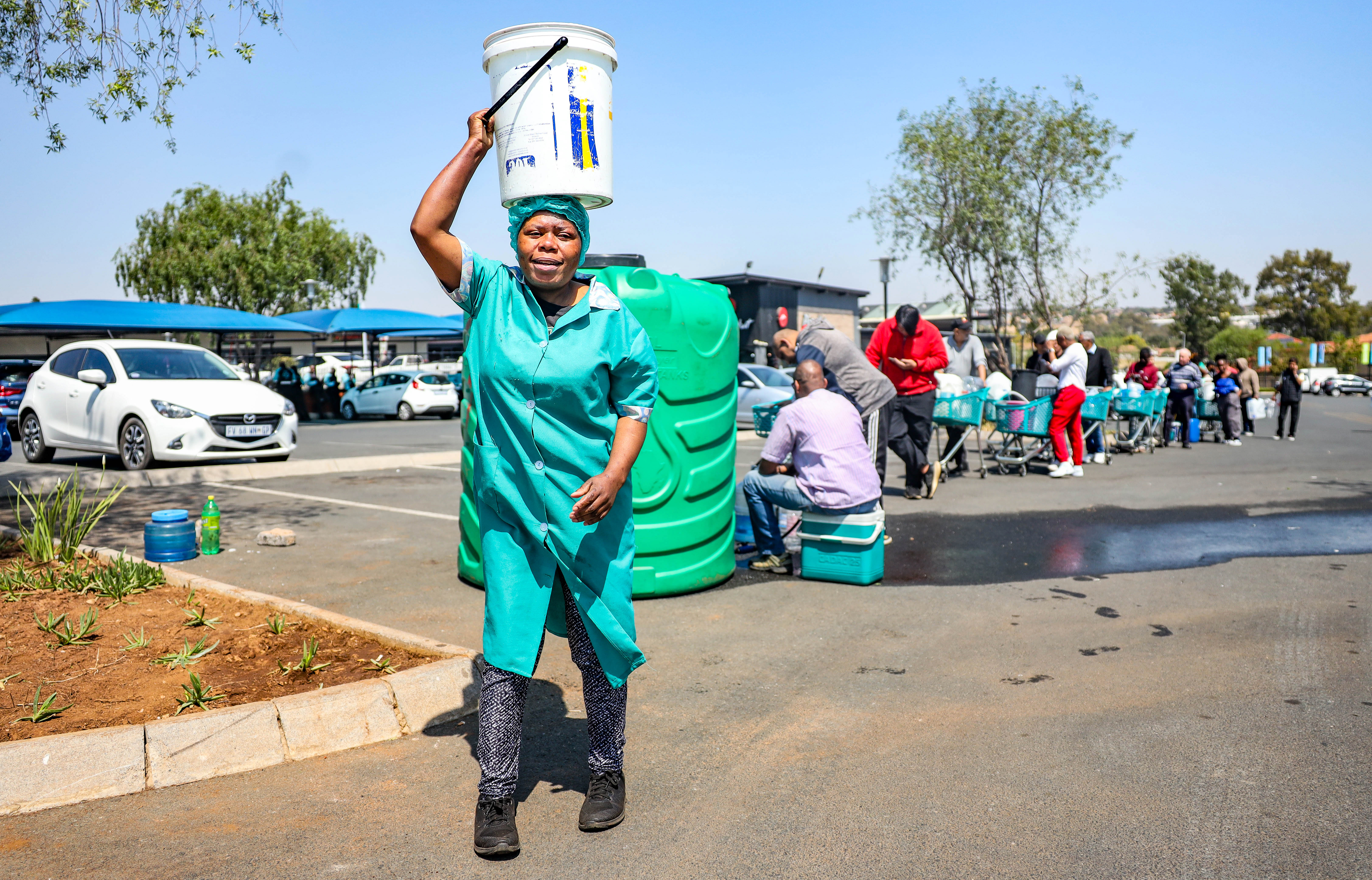A detailed data investigation by Daily Maverick from March to July shows there have been thousands of water cuts across the city this year as it rotates supply. With hot weather, councillors fear the system is close to collapse again.
Numerous reports from late 2023 and through 2024 have said a system collapse is imminent, although Johannesburg Water has repeatedly denied this. This week, the utility tightened water restrictions and revealed that 42 (half) of its fleet of reservoirs are leaking and it has the budget to fix only 20 of them.
It will also start throttling water at 28 high-consumption reservoirs with “smart flow controllers” to stabilise the system. This report shows that the situation was the same a year ago when Daily Maverick reported Day Zero-like water cuts.
Home to more than five million people (and probably more, given the Census 2022 undercount in the province), Johannesburg is South Africa’s economic and trade hub. The water crisis and possible collapse have been reported globally.
Daily Maverick’s Ferial Haffajee asked Dr Ferrial Adam who heads Outa’s WaterCan (community action network) what accounts for the new crisis.
Ferial Haffajee: Johannesburg has a general water crisis, which has spiked this week for the fourth time in a year — each one a mini Day Zero. By your estimation, how many people are without water this time around?
Dr Ferrial Adam: It is really difficult to estimate the number of people affected. The impacted reservoirs and towers feed a considerable number of areas:
- Hursthill Reservoir: 30 areas;
- Brixton Tower: 14 areas; and
- South Hills Tower: 18 areas.
These areas cover a substantial portion of Johannesburg’s population. Moreover, they can be further broken down into stands. For example, Hursthill 1 serves 11,710 stands, and Hursthill 2 serves 5,710 stands, with a stand potentially having more than one property.
Additionally, Hursthill 1 is not functioning properly and is being bypassed. There have also been periods of inconsistent water supply, with levels improving overnight, meaning some areas had water but inconsistently or with low pressure. Therefore, an accurate figure is hard to determine.
Q: I’ve been hearing more and more reports of multiday water cuts. My mom and her neighbours in Mayfair experienced cuts lasting seven days. Similar reports are rampant on Facebook and elsewhere. Have you noticed or been informed of the same issues?
A: Yes, I have seen the same reports. Areas like Brixton (similar to Mayfair), Emmarentia, Montgomery Park, Kensington and Johannesburg South have all experienced cuts and intermittent water supply. What’s concerning is that very little is being said about it, almost as if people are being forced to accept this situation.
Q: Johannesburg Water reported this week that 42 reservoirs have leaks. Is this serious, and does it explain the constant outages?
A: It is very serious, not just because of the number of leaks but also because it places a significant strain on an already vulnerable system. Water losses due to leaks in the city stand at 25%, which makes the situation even worse.
Government and water entities have commented on high demand due to the growing population and the warmer weather as we move into summer. However, the fact that so many reservoirs are leaking raises the question: is this issue really about high demand, or is it because nearly half of the reservoirs are leaking? It feels like we’re being gaslighted!
The constant outages are certainly exacerbated by these leaks, along with throttling measures and shutdowns needed to allow reservoirs to refill. Additionally, Johannesburg Water has budgeted to fix only about 778km of the city’s 12,000km of water pipes, which is another part of the challenge.
Q: How did this happen? Shouldn’t staff be regularly checking the maintenance of the reservoirs? (Johannesburg Water has over 1,300 staff and a big contractor budget.)
A: Exactly! This is a question we’ve been asking for some time. What systems are in place to monitor leaks in reservoirs and general reservoir performance? We’ve asked about telemetry, but we haven’t received a response.
Telemetry systems can link reservoirs to a central system (like a Scada system — a remote operating dashboard) to show water levels and control valve operations or pump switches. If such a system exists, we’ve requested an inspection of the control room and the protocol used for dealing with low/no-flow alarms. If a protocol exists, why isn’t it being implemented?
For more on this, see our civil society’s proposed water action plan regarding Johannesburg’s ongoing water crisis at WaterCAN.
Q: We’ve counted water outages since April, and the numbers amount to thousands of reported cuts per month. What does this data tell us?
A: Besides the obvious impacts on people’s daily lives, it points to an ailing infrastructure. If the government doesn’t set aside or ring-fence funds for water infrastructure, this problem will only worsen. Another concern is that as water cuts increase, there’s growing advocacy for privatising water and water services.
There is now a dashboard tracking leaks, showing the number of leaks reported and fixed. We need to expand and improve this information to make it more user-friendly.
Q: Johannesburg Water recently changed its board again. Every time there’s a new mayor (and there have been six since the 2021 local government election), the boards seem to change. There isn’t a single professional civil engineer or anyone with water-related skills on the current board. The MD, for example, is a BTech engineer and is the only engineer on the board. Is this important?
A: Yes, it is important. The board should consist of people with diverse skills, including water scientists, engineers, governance experts, and financial control specialists. This diversity is essential to understanding the complexity of Johannesburg Water’s operations.
Frequent board changes also prevent the consistency and urgency needed to push Johannesburg Water to get the work done, like securing budget increases, which often takes a back seat in these circumstances. DM





